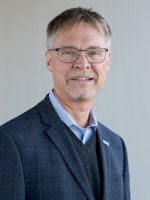
Boston Children's Hospital
Boston, United States
As best as I can recall, I first joined the World Muscle Society in 1999, and attended my first of eight conferences in 2001. Over the intervening time I have become a great fan of Victor’s vision for a broad community governed by the Triple E values that the Society promotes.
As a PhD scientist on the faculty of a medical school, with a laboratory based at a pediatric hospital, I have valued the broad and inclusive multidisciplinary approach that WMS fosters. In medicine, basic scientists can’t know what questions to ask, or goals to set, without understanding the needs and challenges of the patient community and our clinical colleagues. Clinicians can’t advance their care, or develop and adopt new treatments, without understanding the underlying biology of the diseases they seek to treat. My career has been guided by a desire to bridge these aspects as a translational scientist, identifying and characterizing new muscle specific genes, exploring how their basic biology contributes to the pathophysiology of neuromuscular disease, discovering and diagnosing their mutations, creating cellular and animal models of these diseases, and ultimately developing gene-replacement and other therapies. WMS has fostered this translational approach from the start.
The other aspect of WMS that I value tremendously is its globalist view of the neuromuscular community. Thanks to the vision of our Peripatetic Paediatrician, WMS has given equal voice to members and constituents of every culture, and (almost) every continent (although I’m still waiting for our first conference in Antarctica). This is an aspect I want to continue emphasizing as a member of your Board.
Finally, clinicians and academics cannot work in a vacuum. Developing new treatments requires partnerships with the patient community, the biotechnology and pharma industries, and with regulators around the world. With my many ties to members of all these communities I hope to guide and foster increasingly close connections and collaborations between the WMS and its members and trainees with all these constituencies.
My training is in human genetics, which I use to understand the genetic and cell biological basis for inherited human neuromuscular diseases. Throughout my career, I have used the toolset of human molecular genetics to study normal muscle biology and pathophysiology of a variety of neuromuscular diseases. My primary research focus has been on skeletal muscle-specific genes and their roles in muscular dystrophies and non-dystrophic congenital myopathies. Significant accomplishments include early characterization of mutations causing Duchenne/Becker and congenital muscular dystrophies, development of rapid and sensitive multiplexed PCR tests for muscular dystrophy, cloning and characterization of α-actinin genes, and gene discovery in many rare diseases including nemaline, centronuclear, minicore and related congenital myopathies. My laboratory has built one of the largest well-characterized registries and DNA/tissue banks of patients representing the full spectrum of congenital myopathies, which we have used to facilitate many new disease gene discoveries and have arranged for clinical confirmation and return of these results in a clinical setting. We have developed and utilized zebrafish, mouse and canine models of these conditions to better understand the pathophysiology and develop therapies. I have pioneered development of AAV-based gene therapy for X-linked myotubular myopathy, leading to the first in human clinical trial for this disease.
I actively participate in numerous international collaborations, various ENMC Consortia, and am a faculty Mentor in the ENMC Mid-Career Mentoring Programme. As the Sir Edwin and Lady Manton Professor of Pediatrics at Harvard Medical School I am also the founding director of The Manton Center for Orphan Disease Research, which provides resources and a training environment to support research on understudied “orphan diseases” in underserved populations. I am active institutionally in developing protocols and pipelines for the routine application of whole exome/genome sequencing in both research and clinical environments and am a member of my hospital’s Oversight Committee on Personalized Experimental Therapeutics, which has responsibility for the safe and effective development of gene-directed therapies.
Research Benchmark: More than 300 articles and book chapters, H-index = 89, i10-index = 267, and >32,000 citations on Google Scholar.